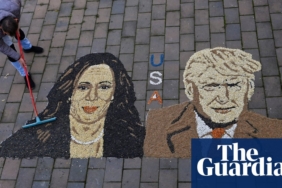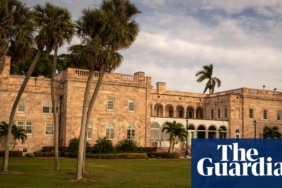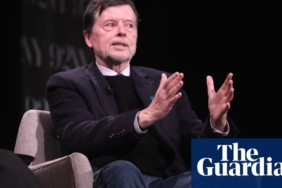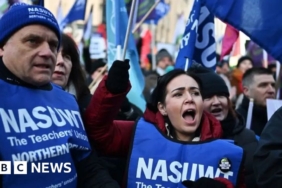İçindekiler
This content discusses the implications of Donald Trump’s win in the presidential election on US foreign policy. It highlights his stance on key issues such as Israel, Iran, and the conflict between Ukraine and Russia. The content also examines the potential consequences of a second Trump administration on global stability and relations. Bu içerikte, Donald Trump’ın Rusya ve Çin politikaları ele alınmaktadır. Rusya ile ilişkilerinde Trump’ın Zelenskyy’ye yardımı kesme ve Putin’le anlaşma yapma olasılıkları vurgulanmaktadır. Ayrıca, Çin ile ticaret savaşları ve Trump’ın Çin lideri Xi Jinping’e karşı tutumu ele alınmaktadır. Son olarak, Trump’ın uluslararası işbirliği ve çok taraflılığa karşı tavrı ve NATO gibi uluslararası kuruluşlara karşı tutumu eleştirilmektedir. Avrupa ülkelerinin Trump’ın ikinci dönemine karşı endişeleri ve multilateral düzenin zarar görebileceği konular da bu içerikte yer almaktadır.
Kaynak: www.aljazeera.com
Donald Trump‘s win in Tuesday’s presidential election comes on back of a heated United States election campaign dominated by his trademark incendiary rhetoric — and it is expected to leave much of the world on edge.
The Associated Press called the election in the former president’s favour on Wednesday morning, marking a return to office for Trump, four years after he was defeated by current President Joe Biden.
On the campaign trail this time around, Trump promised to tackle a range of domestic issues, including immigration and inflation.
He also signalled a return to his “America First” foreign policy, indicating a turn towards greater isolationism and less international collaboration.
But that did not preclude Trump from making grandiose claims of being able to end Russia’s war against Ukraine within 24 hours of taking office, bringing peace to the Middle East, and exerting dominance over China, one of the US’s largest geopolitical rivals.
While there might be a gap between what Trump says and what he is actually able to do, experts warn he should largely be taken at his word.
And with the world facing innumerable challenges – from the climate crisis to the wars in Ukraine, Gaza and Lebanon – the direction Trump takes on foreign policy will have wide-reaching effects.
So what will a second Trump administration mean for US foreign policy? Here’s a look at a few key issues and where the president-elect stands.
Israel’s ‘best friend’
Israeli Prime Minister Benjamin Netanyahu once described Trump as the “best friend that Israel has ever had in the White House”.
While in office, Trump moved the US embassy from Tel Aviv to Jerusalem in a move that was widely denounced by Palestinians and international law experts. He also recognised Israel’s claim to the occupied Golan Heights in Syria.
And his administration brokered the so-called Abraham Accords, a series of agreements that formalised diplomatic and economic relations between Israel and a handful of Arab countries.
Nancy Okail, president and CEO of the Center for International Policy think tank, said Trump largely believes that “throwing money at the problem” is the answer to solving conflict in the Middle East.
But contrary to Trump’s claims that he would bring calm to the region if re-elected, critics say his “arms for peace” framework has been a failure – as evidenced by Israel’s devastating military campaigns in Gaza and Lebanon, which have pushed the Middle East to the brink of all-out war.
Many have noted that the US has already played a role in advancing those conflicts, largely through its steady supply of weapons and diplomatic backing for Israel.
“The rules-based world order and the preservation of US domestic law as well as international laws — we see that has already been broken and undermined,” said Okail.
Trump’s previous tenure in office was defined by his unpredictability, Okail continued. Another four years of volatility in the White House could have serious ramifications. The conflict in the Middle East is already “simmering”, Okail said, warning that his presidency “might expedite things to explode”.
Hostility towards Iran
Trump maintained a hard line against Iran both in and out of the White House.
During Trump’s tenure as president, the US unilaterally withdrew from a 2015 agreement that saw Iran scale back its nuclear programme in exchange for a lifting of international sanctions against its economy.
In the aftermath, his administration heaped crippling sanctions against Tehran and authorised the assassination of top Iranian general Qassem Soleimani, an attack that fuelled tensions across the region.
“When I was president, Iran was in total check. They were starved for cash, fully contained, and desperate to make a deal,” he said in a campaign statement in early October.
Okail said another Trump term could fuel concerns over “dangerous nuclear proliferation”.
There is also a prevailing myth in Washington of “controlled escalation”: namely, that “the current expansion of the war to Lebanon and to Iran, these are all manageable, contained operations”.
“However, this is a very narrow view of how [much] these leaders are actually in control of all the people [and groups] operating in the Middle East,” Okail explained.
She added that the composition of the US Congress could also play a role. There are “hawkish voices” in Washington, DC, who may try to pressure the Trump administration to take an even more extreme approach against Iran.
“For example, [those who believe] the way for stability in the Middle East is to get rid of the regime in Iran … are always looking for, in general, a militarised response to any problem that we see.”
But at the same time, some US conservatives are anti-interventionists, embracing Trump’s “America First” doctrine. “So that may factor into the calculation,” Okail said.
Ukraine and Russia
Trump has said that he will resolve the war between Ukraine and Russia in 24 hours. “If I’m president, I will have that war settled in one day,” he told a CNN town hall last year.
Asked how he would do it, Trump offered few details but said he plans to meet with Russian President Vladimir Putin and Ukrainian President Volodymyr Zelenskyy. “They both have weaknesses and they both have strengths, and within 24 hours that war will be settled. It’ll be over,” he said.
Trump – who has reportedly maintained close ties with Putin – has also criticised Zelenskyy’s requests for additional US assistance to Ukraine, saying “it never ends”.
“I will have that settled prior to taking the White House as president-elect,” Trump said at an event in June.
According to Leslie Vinjamuri, the director of the US and Americas programme at the think tank Chatham House in London, “We have to take Trump at face value.”
“He assumes that he can strike a deal pretty quickly [and] that he would likely block any further assistance to Ukraine,” she said.
For example, there is the possibility that Trump could reach a deal with Putin that excludes Zelenskyy’s input – and could potentially concede quite a lot in terms of Ukraine and its territory, Vinjamuri told Al Jazeera.
“There’s also a question of what kind of relationship he would have with Putin and with Russia, and whether that would embolden Russia more generally in the European context – and I think that’s a real concern for a lot of people.”
China competition
For years, the US and China have been locked in geopolitical competition as the world’s two largest superpowers. The countries have clashed over a range of issues, including trade, Taiwan and dominance over the Indo-Pacific region.
The International Crisis Group (ICG) think tank said Trump’s approach to China is largely based on trade, noting that the ex-president places the US’s economic relationship with China above other issues, such as human rights.
In 2018, for instance, Washington instigated a trade war with Beijing after the Trump administration slapped tariffs on more than $250bn worth of Chinese imports. That spurred a retaliatory measure from the Chinese government.
Nevertheless, Trump has expressed an affinity for China’s strongman leader, President Xi Jinping. In an interview with Fox News in August, Trump said he respected President Xi and “had a great relationship with him”, but that his “massive tariffs” secured billions of dollars from Beijing.
“They took advantage of us. And why shouldn’t they, if we were stupid enough to let them do it?” Trump said. “Nobody got any money from China. I got billions – hundreds of billions of dollars – from China.”
Trump has said he plans to keep up his tariff policy if re-elected, imposing a blanket 10-percent tariff on all imports. But for China specifically, he threatened tariff rates as high as 60 percent on goods.
Joshua Kurlantzick, a senior fellow for Southeast Asia and South Asia at the Council on Foreign Relations think tank, said Trump has been “more assertive” and “more aggressive” on China on the campaign trail.
But Kurlantzick cautioned that the former president “often says things as leverage and then changes them”.
“While Trump in the first term was sort of able to be swayed a little bit by his relationship at times with [Chinese President] Xi Jinping, we don’t really know what would happen now,” he also told Al Jazeera.
Global cooperation, multilateralism
While in office, Trump notoriously derided international bodies such as the United Nations and the the North Atlantic Treaty Organization (NATO) alliance, and withdrew from multilateral accords, including the Paris Agreement on climate change.
He has accused Washington’s NATO allies of not paying their fair share for the bloc’s collective defence, and has warned them that his government would not protect them if they were attacked by Russia. NATO’s charter contains a mutual defence clause for all members.
Vinjamuri at Chatham House said, “Trump creates an opportunity for those who want to take a wrecking ball to the multilateral order.”
European countries are feeling “deep trepidation” about a second Trump term, she told Al Jazeera. They perceive the continent has “a huge amount to lose on the security side” as well as on economic cooperation.
“There are real concerns that Trump might push them harder on tariffs, on China, and be a very disruptive force to the G7, which many Europeans feel has been a very positive venue for collaborating, cooperating on economic and security issues,” she said, referencing the Group of Seven, a forum for some of the world’s largest economies.
“They’re concerned that we may be looking at a G6 – not a G7.”





Yorumlar kapalı.